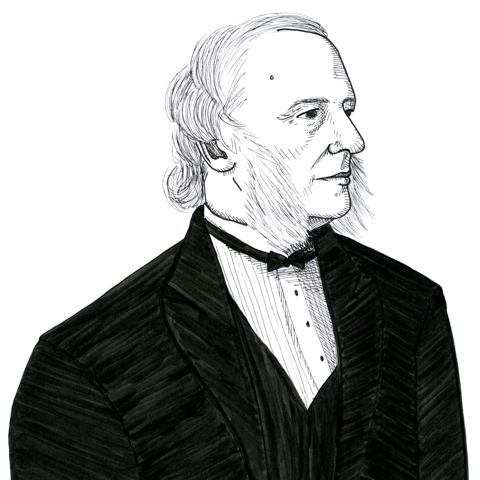
Samuel Smiles on how an idle, thriftless, or drunken man can, and should, improve himself through self-help and not by means of the state (1859).
Found in: Self Help; with Illustrations of Character and Conduct
The Scot, Samuel Smiles (1812-1904), argued that individuals could and should improve themselves through hard work, thrift, self-discipline, education, and moral improvement and not seek the help of government:
Politics & Liberty
[T]here is no power of law that can make the idle man industrious, the thriftless provident, or the drunken sober; though every individual can be each and all of these if he will, by the exercise of his own free powers of action and self-denial. Indeed, all experience serves to prove that the worth and strength of a state depend far less upon the form of its institutions than upon the character of its men. For the nation is only the aggregate of individual conditions, and civilization itself is but a question of personal improvement.